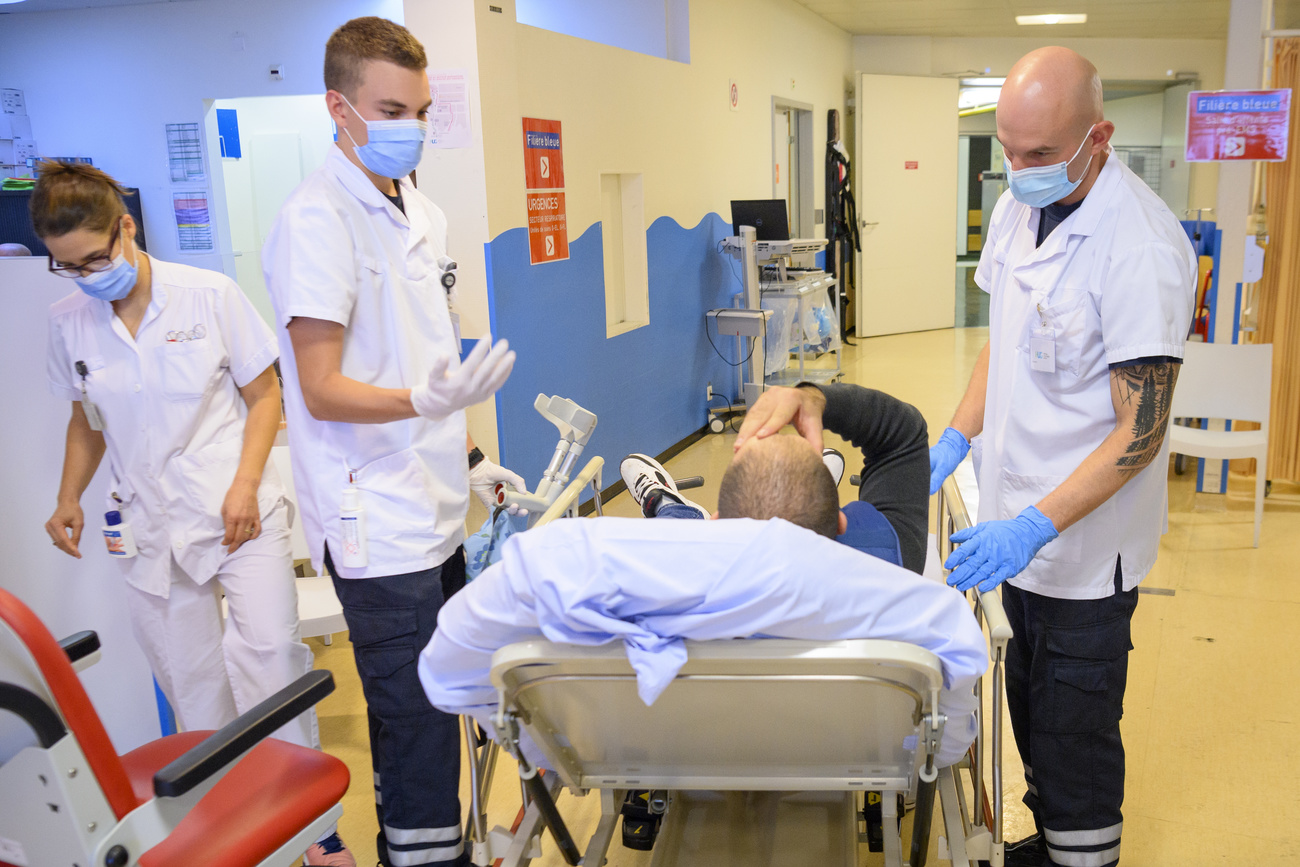
Swiss pandemic response subject to mixed global scrutiny

Switzerland’s handling of coronavirus is judged differently around the world depending on measures being taken in other countries and their appreciation of the Swiss political model. Communications expert Diana Ingenhoff believes Switzerland will retain its positive global image.
Switzerland opted against a lockdown when the second wave of the pandemic struck. Numbers of positive cases have fallen in the last week, but deaths continue to rise and many hospitals are struggling to keep up with the influx of seriously ill patients.
“Our research shows that Switzerland’s image abroad is very stable and extremely positive. It is therefore not to be expected that Switzerland will immediately lose credibility or suffer severe damage to its reputation due to a possible failure to optimally manage the second Covid-19 wave,” Ingenhoff, a professor at the University of Freiburg, told Swiss public broadcaster SRF.
Global media headlines on Switzerland’s response to the pandemic have been mixed. Some focus on the strain on the healthcare sector while others pick out the economic consequences of policy.
Ingenhoff believes that perception abroad is coloured by the policies being carried out in different countries. “Countries that acted in a similar way to Switzerland and had few restrictions cite Switzerland as a positive example. Countries that enforced a tough lockdown now have reason to criticise Switzerland’s handling of the second wave.”
“It is to be expected that in Sweden, for example, Switzerland will be rated much more positively than in Austria.”
Long-running perceptions of the Alpine state also play a role, says Ingenhoff. Some countries may have a stereotypical image of Switzland as a land of mountains and chocolate, but not appreciate the complexities of its political system. This makes an objective verdict of the Swiss pandemic measures more difficult.
It is too early to properly assess any changes in the perception of Switzerland by other countries, the reputation expert said. Switzerland’s global image will not be set by its pandemic response alone, but by a series of other factors – such as climate policy and the behaviour of its financial centre, she added.

More
Coronavirus: the situation in Switzerland

In compliance with the JTI standards
More: SWI swissinfo.ch certified by the Journalism Trust Initiative






























You can find an overview of ongoing debates with our journalists here . Please join us!
If you want to start a conversation about a topic raised in this article or want to report factual errors, email us at english@swissinfo.ch.